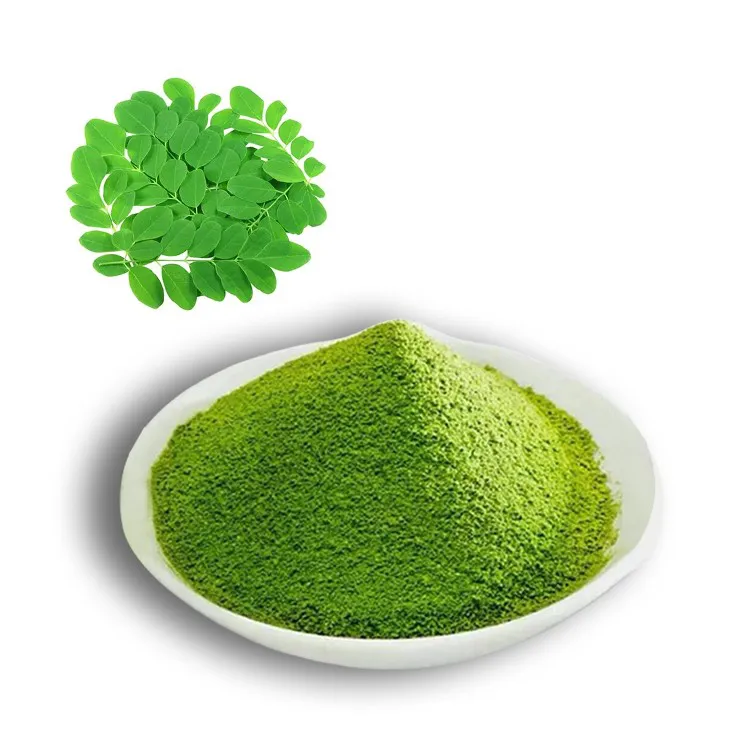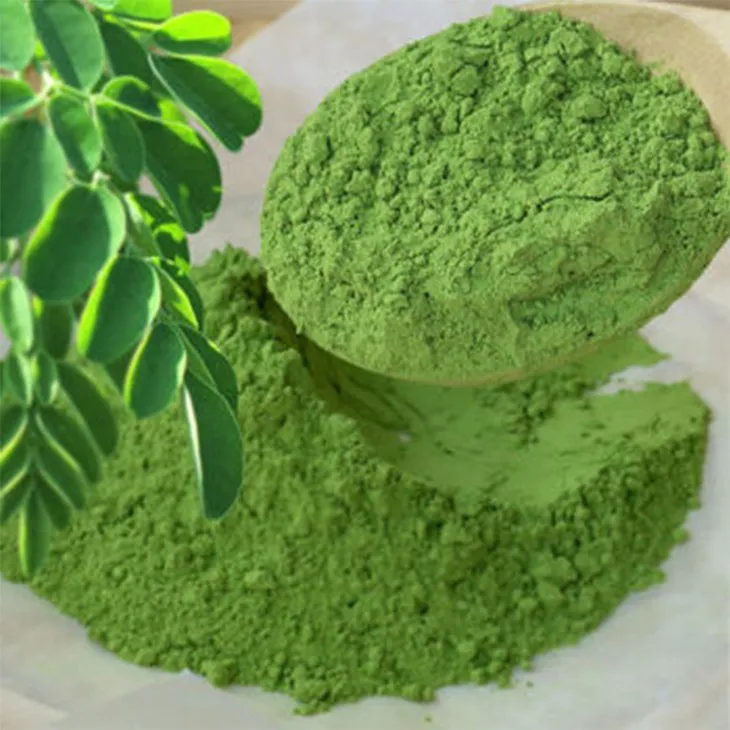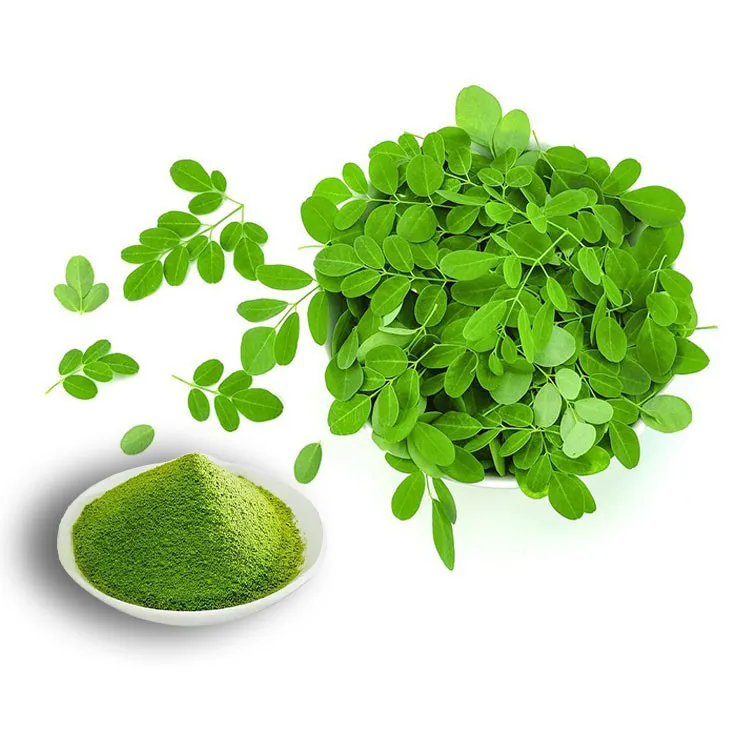- 0086-571-85302990
- sales@greenskybio.com
Expert Tips for Effective Wholesale Moringa Powder Purchasing.
2024-12-20

Introduction
Moringa powder has gained significant popularity in recent years due to its numerous health benefits. For businesses looking to enter the moringa market or expand their product lines, wholesale purchasing of Moringa powder is a crucial aspect. However, it comes with its own set of challenges. This article will provide expert tips on how to effectively purchase Moringa powder wholesale, covering everything from supplier evaluation to ensuring product quality.

1. Understanding Moringa Powder
Before delving into the wholesale purchasing process, it is essential to have a good understanding of what moringa powder is. Moringa powder is made from the dried leaves of the moringa tree (Moringa oleifera). This tree is native to parts of South Asia and is now cultivated in many tropical and subtropical regions around the world.
The powder is rich in nutrients such as vitamins (including vitamin A, C, and E), minerals (such as calcium, potassium, and iron), and proteins. It also contains antioxidants, which contribute to its various health - promoting properties. These qualities make it a sought - after ingredient in the food, supplement, and cosmetic industries.

2. Evaluating Suppliers
2.1 Reputation
One of the first things to consider when looking for a wholesale moringa powder supplier is their reputation. A supplier with a good reputation is more likely to provide high - quality products and reliable service. You can start by checking online reviews and testimonials from other customers. Industry forums and business directories can also be valuable sources of information.
Look for suppliers who have been in the business for a reasonable amount of time. Long - standing suppliers often have more experience in handling moringa powder, which can translate into better quality control and more stable supply chains.
2.2 Certifications
Certifications play a crucial role in ensuring the quality and safety of moringa powder. Suppliers should have relevant certifications such as Good Agricultural Practices (GAP) and Good Manufacturing Practices (GMP). GAP certification indicates that the moringa is grown following proper agricultural standards, which can affect the quality of the raw material.
GMP certification, on the other hand, ensures that the manufacturing process of the powder is carried out in a clean, hygienic, and efficient manner. Additionally, if the moringa powder is intended for use in the food or supplement industries, it may need to comply with specific regulatory certifications such as Food Safety Modernization Act (FSMA) in the United States or EU Organic Certification in Europe.
2.3 Supplier Location
The location of the supplier can have both advantages and disadvantages. Suppliers located in regions where moringa is native or widely cultivated, such as India or parts of Africa, may have access to a large supply of high - quality raw materials at a relatively lower cost. However, you also need to consider factors such as shipping costs, import regulations, and delivery times.
If possible, it may be beneficial to choose a local supplier or one with a distribution center close to your business location. This can reduce shipping times and costs, and also make it easier to communicate and resolve any issues that may arise.

3. Assessing Product Quality
3.1 Appearance and Texture
When evaluating moringa powder samples, pay attention to its appearance and texture. High - quality moringa powder should have a fine, uniform texture without any lumps or foreign particles. The color should be a consistent green, although the shade may vary slightly depending on the variety of moringa and the processing method.
If the powder appears dull, discolored, or has a strange odor, it could be a sign of poor quality or improper storage.
3.2 Nutritional Content
Since one of the main attractions of moringa powder is its high nutritional value, it is important to verify the nutritional content. Suppliers should be able to provide laboratory test reports or certificates of analysis (COA) that detail the levels of vitamins, minerals, proteins, and other nutrients in the powder.
Compare these values with industry standards or the expected levels based on scientific research. A significant deviation from the normal range could indicate a problem with the quality of the raw material or the manufacturing process.
3.3 Purity and Additives
Ensure that the moringa powder is pure and free from contaminants and unwanted additives. Some suppliers may add fillers or preservatives to the powder, which can affect its quality and authenticity. Check the ingredient list carefully and ask the supplier about their quality control measures to prevent contamination.
Testing for heavy metals, pesticides, and other contaminants is also essential, especially if the powder is intended for use in the food or supplement industries. Suppliers should be able to demonstrate that their products meet the relevant safety standards.
4. Pricing Considerations
When purchasing moringa powder wholesale, pricing is an important factor. However, it should not be the sole determining factor. While it may be tempting to choose the cheapest option, this could lead to sacrificing quality.
Compare prices from different suppliers, but also take into account the quality of the product, the supplier's reputation, and the additional services they offer. For example, a slightly more expensive supplier may offer better packaging, faster delivery, or more comprehensive customer support.
Ask about volume discounts. Many wholesale suppliers offer lower prices for larger orders. Calculate the cost per unit based on different order quantities to determine the most cost - effective option for your business.
5. Packaging and Shipping
5.1 Packaging
Proper packaging is crucial for maintaining the quality of moringa powder during storage and transportation. The powder should be packaged in airtight containers to prevent moisture absorption, which can cause spoilage. Look for suppliers who use high - quality packaging materials such as laminated foil bags or sealed plastic containers.
Labels on the packaging should be clear and contain all the necessary information, including the product name, ingredients, nutritional information, batch number, and expiration date.
5.2 Shipping
Consider the shipping options offered by the supplier. They should be able to provide reliable and timely delivery. Inquire about the shipping methods (e.g., air freight, sea freight), transit times, and shipping costs.
Some suppliers may offer free shipping for larger orders, which can be a significant cost - saving factor. Additionally, make sure that the supplier has proper insurance coverage in case of any damage or loss during shipping.
6. Building a Long - Term Relationship
Once you have selected a suitable supplier, it is important to focus on building a long - term relationship. A good relationship with your supplier can bring many benefits, such as more favorable pricing, priority in case of product shortages, and better communication regarding product updates or quality issues.
Pay your invoices on time and maintain regular communication with the supplier. Provide feedback on the products you receive, and be open to suggestions from the supplier on how to improve your business operations related to the moringa powder.
Conclusion
Purchasing moringa powder wholesale requires careful consideration of various factors, from evaluating suppliers to ensuring product quality. By following these expert tips, businesses can make more informed decisions and achieve cost - effective and high - quality procurement of moringa powder, which can in turn contribute to the success of their products in the market.
FAQ:
What are the key factors to consider when evaluating moringa powder suppliers?
When evaluating moringa powder suppliers, several key factors should be considered. Firstly, reputation is crucial. Look for suppliers with positive reviews and a long - standing history in the market. Secondly, check their certifications. Suppliers with relevant quality certifications, such as organic certifications if applicable, are more likely to provide high - quality products. Thirdly, consider their production capacity. Ensure that they can meet your wholesale demands consistently. Fourthly, examine their sourcing methods. Suppliers who source moringa from reliable and sustainable farms are preferable. Finally, assess their customer service. Good communication and responsiveness can make the procurement process smoother.
How can one ensure the quality of wholesale moringa powder?
To ensure the quality of wholesale moringa powder, start by asking for samples. This allows you to test the powder for factors like taste, texture, and purity. Check for proper packaging, which should be airtight and moisture - proof to preserve the powder's quality. Look at the color and smell of the powder; fresh and high - quality moringa powder typically has a distinct, pleasant smell and a consistent green color. Request information about the manufacturing process, including any quality control measures in place. Additionally, look for third - party lab test results if available, which can provide objective data on the powder's composition and quality.
What are the cost - effective strategies for purchasing wholesale moringa powder?
One cost - effective strategy is to buy in larger quantities if possible. Many suppliers offer discounts for bulk purchases. Another strategy is to compare prices from different suppliers. However, don't solely base your decision on price; also consider quality. Look for suppliers who may offer value - added services such as free shipping or flexible payment terms. Additionally, timing can be important. Some suppliers may offer special deals during certain seasons or periods. Consider joining industry associations or networks, which may provide access to exclusive deals or information on cost - effective procurement.
Are there any specific regulations to be aware of when purchasing wholesale moringa powder?
Yes, there are several regulations to be aware of. In many countries, food safety regulations apply to moringa powder as it is a consumable product. This may include requirements for labeling, such as ingredient lists, nutritional information, and allergen warnings. Import and export regulations also need to be considered if the powder is being sourced from or sold to other countries. Some regions may have specific regulations regarding the use of pesticides or fertilizers in moringa farming, which can affect the quality and legality of the powder. Additionally, if the moringa powder is marketed as organic, it must meet the relevant organic certification standards.
How can one find reliable moringa powder suppliers?
One way to find reliable moringa powder suppliers is through industry trade shows and exhibitions. These events bring together many suppliers in one place, allowing you to meet them in person, ask questions, and view product samples. Another option is to use online business directories that specialize in food products or natural ingredients. Online marketplaces can also be a source, but be sure to vet the suppliers carefully. Ask for referrals from other businesses in the same industry. Social media platforms can also be useful; search for moringa - related groups or pages where suppliers may be promoting their products. Additionally, contact industry associations for a list of recommended suppliers.
Related literature
- The Complete Guide to Moringa Powder Quality Assessment"
- "Best Practices in Wholesale Procurement of Natural Powders"
- "Moringa Powder: Sourcing and Quality Control"
- ▶ Hesperidin
- ▶ citrus bioflavonoids
- ▶ plant extract
- ▶ lycopene
- ▶ Diosmin
- ▶ Grape seed extract
- ▶ Sea buckthorn Juice Powder
- ▶ Beetroot powder
- ▶ Hops Extract
- ▶ Artichoke Extract
- ▶ Reishi mushroom extract
- ▶ Astaxanthin
- ▶ Green Tea Extract
- ▶ Curcumin Extract
- ▶ Horse Chestnut Extract
- ▶ Other Problems
- ▶ Boswellia Serrata Extract
- ▶ Resveratrol Extract
- ▶ Marigold Extract
- ▶ Grape Leaf Extract
- ▶ blog3
- ▶ blog4
- ▶ blog5
-
Pure 85% Tomentil Extract.
2024-12-20
-
Beetroot juice Powder
2024-12-20
-
Coconut Water Powder
2024-12-20
-
Saw Palmetto Extract
2024-12-20
-
Licorice Root Extract Powder
2024-12-20
-
Mulberry leaf Extract
2024-12-20
-
Jujube Extract
2024-12-20
-
Red Wine Extract
2024-12-20
-
Centella Asiatica Extract
2024-12-20
-
Hesperidin
2024-12-20
-
Chia Seed Powder
2024-12-20





















